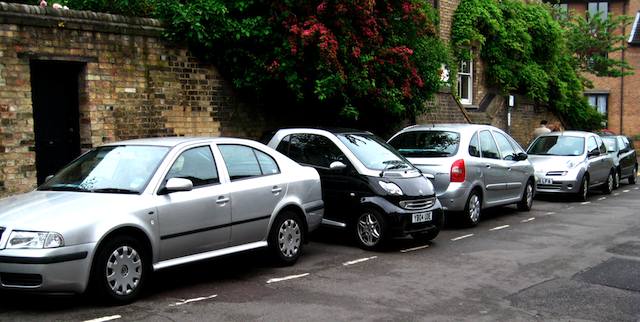Could this be the first time anything interesting has ever emerged from the Eurovision Song Contest? Martin Weller has been musing about it — as was Darren Waters a few days ago.
Martin writes:
I started to watch it, but put a DVD on, then when I looked at Twitter it was awash with Eurovision comments. It struck me that Eurovision was in many ways the perfect Twitter event. It is, in fact, quite boring (none of the songs are any good), so there is plenty of time to Twitter. At the same time, it is quite enjoyable and provokes comment, so there is a desire to share. And you know that it is a communal event, so others will be watching too.
This reminded me of something I read years ago which made a great impression at the time. It was a fantasy. Imagine you’re hovering high above the earth some hot summer night. You can see into millions of homes. A big networked TV show is being broadcast — the kind of thing that used to attract tens of millions of viewers. In each household it’s been watched by one of more silent, passive viewers. The show is crap, and every one of those viewers knows that, really. But still they watch in silence.
And then someone shouts “Hey! This is crap!” And because it’s a hot summer night and it’s a fantasy, his words carry long distances. Other viewers hear them. And then they begin to shout “Yeah, it is crap. Why are we watching this garbage?” And other words to that effect. Viewers are communicating with one another, and suddenly the world has changed.
When I read that, I remember thinking that it constituted a great metaphor for the change from a media ecosystem dominated by push technology (aka broadcast TV) to something much more complex and interactive. An ecosystem in which big companies can no longer dictate the public conversation the way they used to. A much more interesting space.
This morning I spent a while searching for the post that had triggered these thoughts. Initially, I guessed that it must have come from the Cluetrain Manifesto, but I’ve jut re-read it at high speed and it isn’t there. No matter. It’s the thought that counts.
Later: Bill Thompson emails to say that my recollection
sounds like Network, the 1976 film with Peter Finch as the news anchor who gets everyone to go to the window and shout ‘I’m mad as hell and I’m not going to take this any more’. Directed by Sidney Lumet.
He’s probably right. Funny how memory plays tricks on one. I could have sworn that it was something I’d read. But, courtesy of YouTube, here it is:




